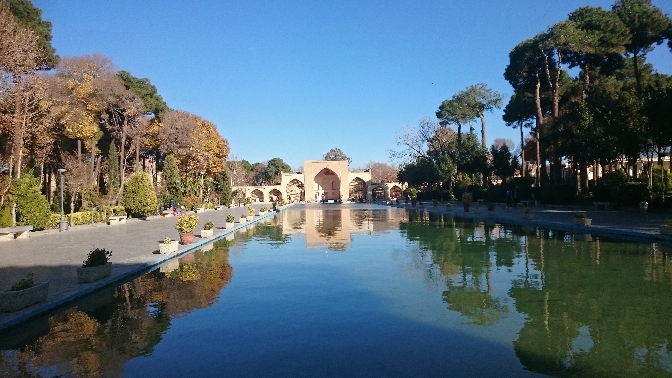 Photo: Roland HardenbergProjekt im Förderprogramm "Hochschuldialog mit der Islamischen Welt" des Deutschen Akademischen Austauschdienst (DAAD)
Photo: Roland HardenbergProjekt im Förderprogramm "Hochschuldialog mit der Islamischen Welt" des Deutschen Akademischen Austauschdienst (DAAD)
Förderung:Deutschen Akademischen Austauschdienst (DAAD)
Förderungszeitraum: Januar bis Dezember 2018
Projektleitung: Prof. Dr. Roland Hardenberg; Dr. Shahnaz Nadjmabadi; in Kooperation mit Prof. Dr. Susanne Schröter (Goethe-Universtität; FFGI)
Koordination: Dr. des. Katja Rieck
The project will promote dialog between graduate students and early career researchers from the University of Isfahan (Iran), the Ferdowsi University of Mashhad (Iran) and the Goethe University Frankfurt am Main (Germany). It will do so by taking up an important discussion in both countries, namely the role, relevance and possible contribution of the social sciences and humanities in addressing pressing socio-political issues related to the integration of marginalized and disadvantaged groups: Migrants, ethnic and religious minorities. The exchange between project participants will focus on the concrete case of the allocation and use of resources. The innovative aspect of this project is that it does not adopt the usual economic perspective on resources; instead it highlights the social and cultural dimensions of resources and their use.
Another important component of the project is the explicit emphasis on a dialog that also includes practitioners, i.e. those who are directly involved in policy work or intervention, be it in governmental or non-governmental organizations. This component allows project participants to check the practical relevance and feasiblity of contributions of social science and humanties research in dealing with contemporary socio-political problems.
The general aim of this 12-month project is to encourage dialog between Iranian and German early career academic researchers and practitioners on socially relevant issues, and is twofold: 1) to provide an understanding of the social dynamics in both countries and 2) to become familiar with how governmental and non-governmental institutions in the respective countries deal with these issues. This will set the basis for further exchange and an expansion of the topics of dialog between the German and Iranian partner institutions in this project. The results of our exchanges on increasing the practical relevance and applicability of social science and humanities research will have concequences for curricula, teaching and professional training of students and early career researchers at the participating Iranian and German institutions.
The project aims of promoting dialog and exchange will be achieved through the establishment of two working groups that will bring together 20 Iranian and German Master's students and PhD candidates who will be guided and supported by their respective supervisors to focus on a specific component of the project theme. Working Group I focuses on "Resources and New Perspectives in Social Science and Humanities Research and Teaching“. Working Group II focusses on “The Social and Cultural Dimensions of Resources in Appliced Contexts”. Each working group will work on concrete cases dealing with pressing social issues, such as the importance of the attention of socio-cultural dimensions of resource allocation and use in dealing with the social integration of migrants and refugees.The results of sustained work on the case studies conducted in the working groups will be discussed in two workshops. The first workshop will be held in June 2018 in Frankfurt and deals with “Integration: Socio-Cultural Dimensions of Resource Allocation and Use in Germany and Iran”. The second workshop will take place in December 2018 in Isfahan and focuses on “Research and Practice:The Resource Perspective in the Social Sciences and Humanities". The results of the working groups’ 12-months of dialog and outcome of the discussions at the two workshops will serve to forumulate an agenda for continued dialog and exchange in the future.







